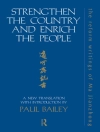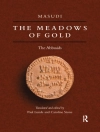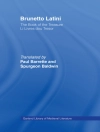Interdisciplinary views of the debates over and transformation of German cultural identity since unification.
The events of 1989 and German unification were seismic historical moments. Although 1989 appeared to signify a healing of the war-torn history of the twentieth century, unification posed the question of German cultural identity afresh. Politicians, historians, writers, filmmakers, architects, and the wider public engaged in ‘memory contests’ over such questions as the legitimacy of alternative biographies, West German hegemony, and the normalization of German history. This dynamic, contested, and still ongoing transformation of German cultural identity is the topic of this volume of new essays by scholars from the United Kingdom, Germany, the United States, and Ireland. It explores German cultural identity by way of a range of disciplines including history, film studies, architectural history, literary criticism, memory studies, and anthropology, avoiding a homogenized interpretation. Charting the complex and often contradictory processes of cultural identity formation, the volume reveals the varied responses that continue to accompany the project of unification.
Contributors: Pertti Ahonen, Aleida Assmann, Elizabeth Boa, Peter Fritzsche, Anne Fuchs, Deniz Göktürk, Kathleen James-Chakraborty, Anja K. Johannsen, Jennifer A. Jordan, Jürgen Paul, Linda Shortt, Andrew J. Webber. Anne Fuchs is Professor of German Literature at the University of St.Andrews, Scotland. Kathleen James-Chakraborty is Professor of Art History at University College Dublin, Ireland. Linda Shortt is Lecturer in German at Bangor University, Wales.
Table des matières
Introduction – Anne Fuchs and Kathleen James-Chakraborty and Linda Shortt
1989 and the Chronological Imagination – Peter Fritzsche
Unity on Trial: The Mauerschützenprozesse and the East-West Rifts of Unified Germany – Pertti Ahonen
Apples, Identity, and Memory in Post-1989 Germany – Jennifer A. Jordan
Topographical Turns: Recasting Berlin in Christian Petzold’s Gespenster – Andrew J. Webber
Interrupting Unity: The Berlin Wall’s Second Life on Screen – a Transnational Perspective – Deniz Gokturk
Beyond the Wall: Reunifying Berlin – Kathleen James-Chakraborty
The Rebirth of Historic Dresden – Jürgen Paul
Labyrinths, Mazes, and Mosaics: Fiction by Christa Wolf, Ingo Schulze, Antje Rávic Strubel, and Jens Sparschuh – Elizabeth Boa
Reimagining the West: West Germany, Westalgia, and the Generation of 1978 – Linda Shortt
‘Dem Sichtbaren war nicht ganz zu trauen’: Poetic Reflections on German Unification in Angela Kraussand Monika Maron – Anja Johannsen
Cultural Topography and Emotional Legacies in Durs Grünbein’s Dresden Poetry – Anne Fuchs
History from a Bird’s Eye View: Reimagining the Past in Marcel Beyer’s Kaltenburg – Aleida Assmann
Works Cited
Notes on the Contributors
Index
A propos de l’auteur
Kinda Shortt is Associate Professor at the University of Warwick. Her research focuses on concepts of place, belonging, and attachment intwentieth- and twenty-first-century German-language literature and film. Significant publications in this area include: ‘Borders, Bordering, and Irregular Migration in Novels by Dorothee Elmiger and Olga Grjasnowa, ‘ MLR 116, no. 1 (2021): 134-52; and German Narrativesof Belonging: Writing Generation and Place in the Twenty-first Century (Oxford: Legenda, 2015).












